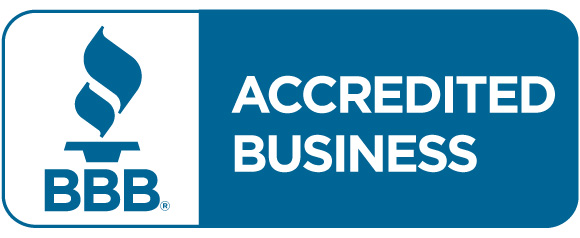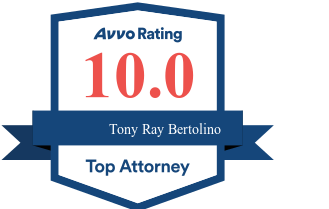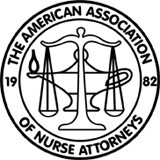Most people who go into caregiving professions do so because they genuinely care about the welfare of people and want to help. They work hard to earn their credentials and are proud of their careers. They understand the vulnerabilities of the patients they care for and carry out their responsibilities with the utmost integrity.
But sometimes, despite their best efforts, caregivers can find themselves accused of inappropriate behavior that could affect their ability to continue in their chosen profession. Understanding more about patient abuse can help caregivers improve patient care practices.

If you’ve been accused of patient abuse, our team of experienced attorneys can help you.
What Is Patient Abuse?
Patient abuse occurs when someone in a vulnerable state of health is taken advantage of by a person they have entrusted with their care. Patient abuse can be physical or psychological. It can consist of overt acts against a patient or it can be the withholding of appropriate care from a patient.
Patient abuse can be intentional, reckless, or careless. In some instances, patient abuse is considered criminal conduct.
According to the International Association for Healthcare Security and Safety (IAHSS), about one in every six patients treated in the community experiences patient abuse. The patient abuse rate is much higher for patients living in institutional facilities where a majority of caregivers report committing patient abuse.
Common Types of Patient Abuse
Patient abuse typically occurs in one of the following ways:
- Physical abuse, such as pushing, striking, or using physical restraint
- Emotional abuse, such as verbal insults or psychological manipulation
- Sexual abuse
- Neglect, which includes failing to provide reasonable care to a patient in need
- Exploitation, such as the inappropriate use of a patient’s financial resources
Those most likely to experience patient abuse have physical or mental conditions that make them especially vulnerable, such as children, the elderly, or the disabled. Patient abuse can occur anywhere that inappropriate or unprofessional behavior by a caregiver can result in harm to a patient. It might occur in an in-home caregiving arrangement or within an institutional setting, like a hospital or nursing home.
Nursing Home Abuse
Nursing home abuse is patient abuse to residents of nursing and long-term care facilities. It happens to elderly and disabled patients and occurs frequently enough that it has become a specific type of patient abuse.
Types of Caregivers Who Can Commit Patient Abuse
Patient abuse may be committed by any medical professional or caregiver that has some responsibility for the care of a patient – including:
- Doctors, nurses, or physician assistants
- Psychologists
- Dentists
- Institutional and home health care workers
A person who is accused of patient abuse will face disciplinary proceedings by the licensing board that granted their professional license. They may face professional restrictions and sanctions, which may include suspension or even revocation of their professional license.
In some cases, allegations of patient abuse may also result in criminal charges. If an alleged behavior or omission meets the definition of criminal conduct, it may be charged and prosecuted in addition to a licensing board investigation.
Is It Considered Patient Abuse If a Patient Provokes a Caregiver?
Except in extreme situations, some unpleasant behavior on the part of patients comes with the territory, and caretakers are expected to behave professionally under most circumstances. The Texas Health and Human Services Commission (HHS) makes it fairly clear that a caregiver who slaps a patient after the patient pulls her hair, for example, is probably going to face a licensing board investigation.
Patient Neglect vs Patient Abuse
Patient neglect is a type of patient abuse. The difference between neglect and abuse is one of degree.
Neglect is typically an act of omission. This is when a patient who is in need of care does not receive that needed care. Abuse often involves an overt act, which is something that is done intentionally or without proper regard and that ultimately harms a patient.
What to Do If You Are Accused of Patient Abuse
When you receive notice from your licensing board that a formal complaint of patient abuse has been filed against you, do not treat it lightly. Your professional license could be at stake. You must provide your response to the allegations in a timely manner.
You need to take each allegation seriously and provide a thorough and direct response. You may need to provide documentation that could take time to collect. An experienced professional license defense attorney can help you put together a credible defense.
What Not to Do If You Are Accused of Patient Abuse
It can certainly be a shock and unsettling to learn that you have been accused of patient abuse. And while it is definitely not a good idea to ignore such notification, it is an equally bad idea to respond from a place of emotional reaction.
You may need to talk to someone, but this is not the type of situation to take to your family or friends. Call a professional license defense lawyer for perspective and advice as to what your next steps should be.
Can You Lose Your Professional License for Patient Abuse?
Absolutely! Revocation is one of the possible disciplinary consequences that may result from an accusation of patient abuse. But you may instead receive some lesser penalty such as a fine, additional education, probation, or a license suspension. It is also possible to get the complaint against you dismissed with no disciplinary consequences.
Ultimately, a well-prepared defense is your best offense.
Contact Our Experienced Team of Attorneys for Help
At Bertolino LLP, we have extensive experience representing licensed professionals who have been accused of misconduct. As licensed professionals ourselves we know what’s at stake, and so we fight for our clients as though our own careers were being threatened.
If you have received notification that your licensing board is investigating a complaint against you, call us for a free consultation, or contact us via our website.















